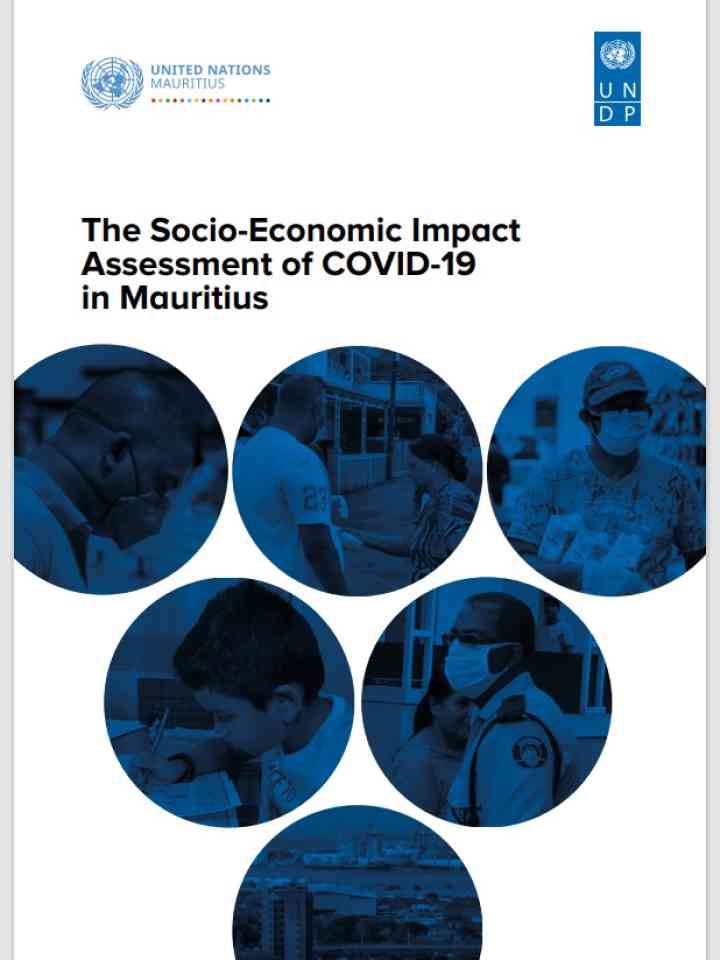The Socio-Economic Impact of COVID-19 in Mauritius
The report assesses the impacts of the COVID-19 pandemic on Mauritius, encompassing economic, household, and societal impacts. This assessment, conducted by the United Nations Development Programme (UNDP) and other collaborators, addresses the period up to October 31, 2020, highlighting the concerted efforts to capture the pandemic's multi-dimensional effects. At the macro level, Mauritius faced a significant downturn, with critical sectors like tourism, manufacturing, and services severely affected, leading to a dramatic contraction in GDP and an increase in unemployment rates. The assessment reveals that without governmental intervention, the economic fallout could have been more severe, indicating the pivotal role of government stimulus in mitigating the economic shock.
On a household level, the report details how Mauritian families grappled with reduced income, debt, and challenges in accessing food and basic provisions. The lockdown and subsequent economic slowdown led to a notable decline in household income across various sectors, with tourism, construction, and manufacturing hardest hit. The document underscores the resilience displayed by households through adaptation and the sourcing of alternative income streams, despite the looming challenges of debt servicing and maintaining food security.
Community and societal impacts were significant, with increased social vulnerabilities among specific groups, including women, children, and the economically disadvantaged. The report discusses the strain on social cohesion, rising domestic violence, and the disparate impact on educational access due to the shift to online learning platforms. Recommendations highlight the necessity of targeted support to vulnerable groups, emphasizing the importance of social protection measures, job preservation, and economic stimulus to foster a resilient recovery.
Explore further
